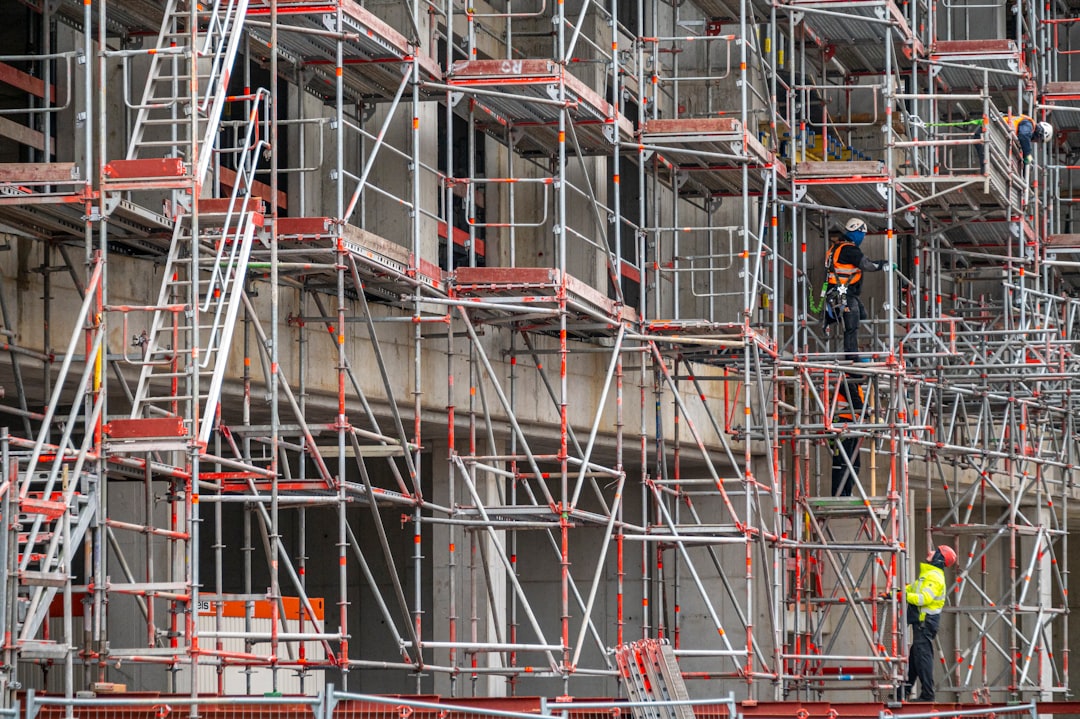
Before the first footing is poured, every home builder faces one unavoidable line item: the cost to level the site. "Level land cost" covers clearing, grading, and preparing a lot so the slab, crawl space, or basement sits on stable, code-compliant ground. Because site conditions change block by block, estimating this number accurately can be challenging. Current costs range from $1.50 to $5.00 per square foot depending on site specifics.
• Structural integrity starts with properly compacted soil and correct slope
• Municipal inspectors enforce strict elevation and drainage codes
• An unlevel pad adds hours to framing, increases concrete volumes, and strains material budgets
• Re-grading post-construction costs 3-4 times more than getting it right the first time
1. Topography: Steeper lots require more cut-and-fill.
2. Soil Type: Clay demands deeper compaction; rock excavation needs heavy equipment.
3. Accessibility: Limited street frontage means longer haul routes and smaller machinery.
4. Drainage Requirements: Swales, French drains, and retaining walls add to earthwork totals.
5. Local Rates: Equipment, labor, and dumping fees vary by county and season.
• Minor grading on a flat infill lot: $1.50 – $2.50 per square foot
• Moderate cut-and-fill on rolling terrain: $3 – $6 per square foot
• Major excavation with export/import: $3.50 – $6.50 per square foot
These numbers fluctuate daily with fuel, landfill fees, and crew availability. That volatility is why integrating live cost feeds into every estimate is crucial.
Real-Time Voice Estimating
Speak dimensions on site, and mobile AI captures slope percentages, pad size, and haul distances instantly. No double entry or lost notepads.
Automated Cut-and-Fill Calculations
Upload topographic PDFs or snapshots from your phone. Auto-generates 3D terrain models and pinpoints the optimal finished grade to minimize earth moved.
Live Material and Haul Pricing
Engines ping local quarries, dump sites, and trucking fleets every 15 minutes. Your estimate reflects today’s tipping fees—not last quarter’s averages.
Scenario Planning
Need to know whether a one-foot elevation change saves money? Toggle options in the app and see cost impacts update in seconds.
1. Open the mobile dashboard on site.
2. Say “Start land leveling estimate.”
3. Dictate lot dimensions, slope readings, and access notes.
4. Upload or snap the current survey.
5. Review the AI-generated cut-and-fill map.
6. Select local soil export and import vendors suggested by the platform.
7. Receive a full line-item estimate and ready-to-send client quote in under three minutes.
• Coordinating leveling with utility trenching to avoid re-handling soil
• Scheduling grading during off-peak dump hours for reduced tipping fees
• Reusing site-suitable fill to limit import volumes
• Opting for engineered retaining walls instead of mass earth cuts on tight lots
These opportunities can highlight potential savings before you break ground.
A sloped quarter-acre lot looked like a budget-breaker. Traditional bids came in at $42,000 for excavation and retaining. By modeling three pad elevations, an optimal 18-inch cut was discovered, reusing on-site fill behind a modular block wall. Final grading invoice: $27,400—a 35% reduction without design compromises.
How accurate is the AI estimate?
Average variance is under 2% when survey data is current and soil reports are provided.
Can it integrate with my civil engineer’s CAD?
Yes. Import DWG, DXF, or LandXML files directly into the platform.
What if the city changes drainage requirements?
Update the slope or swale parameters, and recalculations of quantities and costs are instant.
Level land cost can make or break residential profit margins. Replace guesswork with precise, live-priced data and turn leveling from a risk into a revenue-protected task. Schedule a demo to see real-time grading estimates in action.

Contractors who master grading workflows consistently protect their margins. Beyond basic cut-and-fill math, advanced tools can turn earthwork into a competitive edge.
• Pair drone photogrammetry with takeoffs to capture real-time contours without waiting for survey crews.
• Build staged grading plans—rough, intermediate, and finish—to avoid re-mobilization fees and keep subs on schedule.
• Use weather APIs to anticipate rain delays and resequence tasks, preventing costly re-compaction.
• Negotiate haul-back rates through vetted trucking networks; backhauls can cut transport costs by up to 20%.
• Generate client-facing visuals that overlay finished pad elevations on neighborhood photos, accelerating permit approvals.
On a narrow lakeside parcel, a customer faced three feet of elevation difference across a 60-foot build line. Simulating sixteen grading scenarios balanced retaining wall height, driveway slope, and export volumes. The selected plan shaved 240 cubic yards of export, trimming $4,800 from trucking and landfill fees while preserving lake views—a win-win for builder and homeowner alike.
Whether you run a two-person framing crew or manage dozens of spec homes, leveling accuracy sets the tone for every downstream trade. Join the builders who rely on instant, defendable land preparation budgets. Sign up today, feed your next survey into the platform, and watch your level land cost forecast tighten—no spreadsheets required.